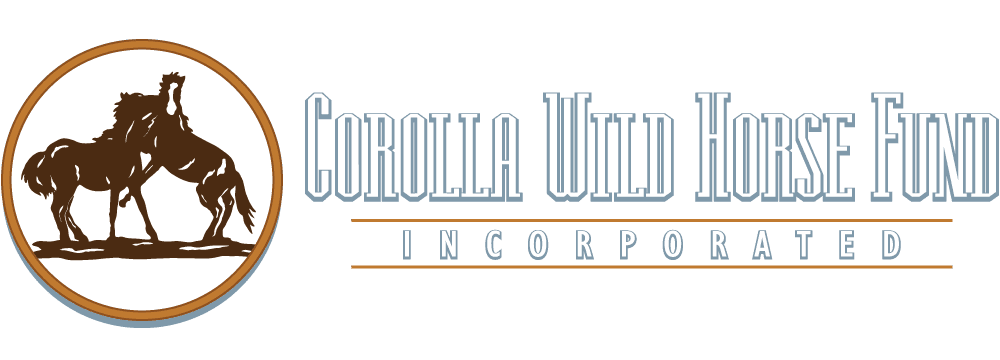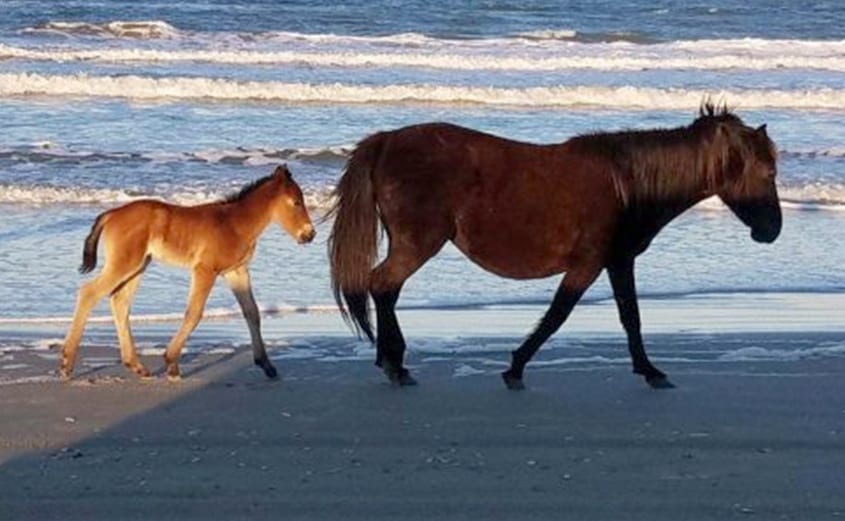First New Foal of 2019 Born to Corolla Herd
Coastal Review Online
4.4.19 by Staff Reporter
COROLLA – The Corolla Wild Horse Fund announced Thursday that the first foal of 2019 was born March 31.
CWHF officials hadn’t determined the foal’s gender, but they said that both mom and baby were in good condition.
The foal was named Renzi in honor of Melissa Renzi, who has several terminal illnesses, has been in hospice care since 2017 and made her first visit to the Outer Banks last weekend in celebration of her birthday. Seeing the wild horses of Corolla was on her bucket list, CWHF officials said, and with the help of friends and the community, that dream came true on the same weekend the foal was born.

Jim and Melissa Renzi on their first visit to Carova, March 30. Photo: Jeff Kelly
“It seemed only fitting to name the foal after Melissa, who is endlessly upbeat, strong, and kind. Traits the Banker horses share with her,” CWHF said in the announcement.
The herd of about 100 Colonial Spanish mustangs on the Currituck Outer Banks is one of only two groups of this threatened breed left in the wild. CWHF, the nonprofit group that manages the herd, said the horses were brought to the barrier islands by Spanish explorers in the 16th century. The horses now roam freely on about 7,500 acres of habitat north of the paved section of N.C. 12
CWHF uses darts to administer immuno-contraception using the federally approved substance porcine zona pelucida, or PZP. The program is conducted under the auspices of the Humane Society of the United States and the Science and Conservation Center in Billings, Montana. PZP is administered annually and is the least invasive method of delivery and the most humane method to control population, CWHF said.
Mares younger than 4 or older than 15 and mares that have had at least one foal are darted annually in an effort to reduce inbreeding, improve the long-term health of the mares, and maintain a sustainable population of horses.
CWHF said there are usually about six births per year, but more foals are expected this year to offset an ageing population and the deaths and removals of more than 10 horses in 2018. The herd is maintained at between 110-120 horses.



